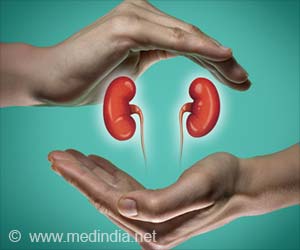World Alzheimer's Day on September 21st raises global awareness about Alzheimer's disease, advocating for early diagnosis, proactive care, and reducing stigma for those affected.
- Alzheimer’s affects over 55 million people worldwide, with numbers rising
- The 2024 theme emphasizes early diagnosis and reducing stigma
- Key prevention includes a healthy lifestyle and staying socially engaged
World Alzheimer's Month 2024: time to act on dementia
Go to source). The campaign focuses on improving understanding and reducing the stigma associated with dementia, a condition that affects over 55 million people worldwide, according to the World Health Organization (WHO).
Alzheimer’s disease accounts for 60-70% of all dementia cases globally. #alzheimers #medindia’
Understanding Alzheimer’s Disease
Alzheimer’s is a progressive brain disorder that leads to memory loss, confusion, and changes in behavior. The disease typically affects people over the age of 65, but early-onset Alzheimer’s can affect younger individuals as well. Some of the key features of Alzheimer’s include:- Memory Loss: One of the earliest and most recognized symptoms is difficulty remembering recent events or conversations.
- Cognitive Decline: Alzheimer’s causes a decline in cognitive abilities, such as problem-solving, judgment, and language skills.
- Behavioral Changes: As the disease progresses, individuals may experience mood swings, depression, anxiety, and aggression.
Global Impact of Alzheimer’s Disease
As the world’s population ages, the prevalence of Alzheimer’s disease is increasing. Some key statistics highlighting its global impact include:- Alzheimer’s disease accounts for 60-70% of dementia cases.
- Every year, around 10 million new cases of dementia are diagnosed globally.
- By 2050, it is estimated that the number of people with dementia could reach 152 million, largely due to increasing life expectancy.
Key Message for 2024
Each year, World Alzheimer’s Day follows a specific theme to guide the global conversation. The theme for 2024 is “Time to Act on Dementia, Time to Act on Alzheimers," emphasizes the urgent need for proactive measures to address dementia’s growing impact. It encourages healthy lifestyle choices, early diagnosis, and open conversations to reduce stigma. The theme also calls for collective global action from governments, communities, and healthcare professionals to prioritize Alzheimer’s care and awareness.Some important preventive measures include:
- A balanced diet rich in fruits, vegetables, and omega-3 fatty acids can support brain health.
- Physical activity improves blood flow to the brain and may reduce the risk of cognitive decline.
- Engaging in mentally stimulating activities such as reading, puzzles, and learning new skills helps to strengthen brain connections.
- Maintaining strong social connections and staying engaged in the community is vital for emotional and cognitive well-being.
Challenges Faced by Alzheimer’s Patients and Caregivers
Living with Alzheimer’s can be challenging for both patients and caregivers. Some of the key challenges include:- As Alzheimer’s progresses, individuals face worsening memory loss, disorientation, and difficulty in completing everyday tasks.
- Alzheimer’s patients may experience anxiety, depression, and frustration as they struggle with the loss of independence and cognitive abilities.
- Families and caregivers often bear the heavy emotional, physical, and financial burden of caring for someone with Alzheimer’s. The role of caregivers is especially demanding as patients may require 24/7 assistance as the disease advances.
Importance of Early Diagnosis
Early diagnosis of Alzheimer’s disease can greatly improve the quality of life for patients and their families. Some benefits of early detection include:- While there is no cure for Alzheimer’s, early diagnosis allows patients to access treatments that can temporarily improve symptoms or slow the progression of the disease.
- Early diagnosis gives individuals time to make important decisions regarding their care, legal matters, and financial arrangements.
- Patients and caregivers can seek out support groups, counseling, and resources to help them navigate the challenges of the disease.
Reference:
- World Alzheimer’s Month 2024: time to act on dementia - (https://www.paho.org/en/news/9-9-2024-world-alzheimers-month-2024-time-act-dementia)
Source-Medindia










